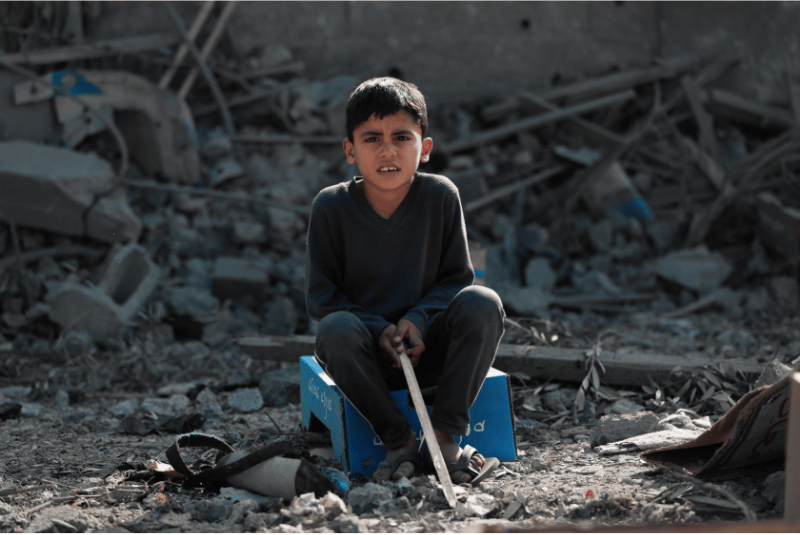"The Waning Relevance of the United Nations in Our Complex World: A Call for Restructuring"
In the current Israel-Hamas conflict, Israel has defied United Nation's urge to reconsider its evict notice of North Gazan's. It proves beyond doubt that UN is loosing its prestige and status of the world's negotiator. This opinion piece is dealing with UN's role in more complex world order.
Crisis Mitigation Bureau
10/18/20233 min read


In the aftermath of World War II, the United Nations emerged as a symbol of hope, a platform where nations could unite to maintain peace, promote cooperation, and tackle global challenges. However, as the world has evolved and new crises have emerged, the United Nations' relevance in today's complex global landscape is increasingly in question. A myriad of pressing issues, ranging from the Israel-Palestine conflict and the Kashmir dispute to the South China Sea tensions, the COVID-19 pandemic, Afghanistan, Syria, and many more, underscores the urgent need for a comprehensive reevaluation and restructuring of the UN to restore its former glory.
The Israel-Palestine conflict, an enduring and deeply entrenched issue, serves as an exemplar of the UN's diminishing impact. Decades of resolutions and diplomatic efforts have not yielded a solution, leaving both Palestinians and Israelis disillusioned. The UN's influence in this long-standing crisis has steadily eroded over time, raising doubts about its effectiveness as a peace-brokering institution.
The Kashmir dispute, another protracted and destabilizing conflict, casts a harsh light on the UN's inability to mediate and bring about lasting peace. The ongoing tension between India and Pakistan remains unresolved, despite numerous international interventions and UN resolutions. This persistent deadlock has sown frustration among the affected populations and the broader international community, prompting questions about the UN's ability to fulfill its peacekeeping mandate effectively.
The South China Sea dispute underscores the limitations of the United Nations in addressing contemporary global challenges. As China asserts its territorial claims in the region, tensions continue to escalate, and the international community finds it difficult to forge a united response. The UN, once seen as a platform for collective action, often appears impotent in the face of such geopolitical challenges.
The COVID-19 pandemic has revealed the need for the UN to adapt to evolving global crises. While the World Health Organization (WHO) plays a pivotal role in coordinating pandemic responses, the UN as a whole has faced criticism for its limited capacity to enforce global health guidelines and for its lack of preparedness in managing a crisis of such magnitude. Moreover, this pandemic has laid bare the stark disparities in access to vaccines and resources, which the UN has been unable to address effectively.
Afghanistan, Syria, and various other ongoing conflicts further demonstrate the UN's declining influence. In Afghanistan, despite two decades of international intervention, the situation remains precarious, with the Taliban's resurgence challenging any notion of a stable, unified nation. In Syria, a brutal civil war rages on, with no end in sight, and the UN's role in mediating a peaceful resolution appears increasingly marginal.
The UN's inefficiencies and its diminishing relevance in the face of these crises make a compelling case for a comprehensive restructuring. To revive the UN's former glory and enable it to address the pressing issues of our time, a series of crucial reforms is necessary:
Security Council Reform: The UN Security Council, with its permanent members and veto powers, must undergo a significant overhaul. A more inclusive representation of nations, reflecting current global power dynamics, is essential to enhance the UN's legitimacy.
Conflict Resolution Overhaul: The UN needs to rethink its conflict resolution mechanisms, moving beyond traditional diplomacy to incorporate innovative approaches and broader international involvement.
Global Health Agency: The COVID-19 pandemic has underscored the need for a dedicated UN agency with stronger powers to coordinate global health responses, ensure equitable vaccine distribution, and enhance pandemic preparedness.
Strengthened Peacekeeping: The UN should reinforce its peacekeeping missions, improving training and accountability, and deploying forces more proactively to prevent and resolve conflicts.
Promotion of Multilateralism: The UN must redouble its efforts to promote multilateralism and international cooperation, countering the rising tide of unilateralism and protectionism.
In conclusion, the United Nations, once a symbol of hope and cooperation, is gradually losing relevance in today's complex world due to its inability to effectively address the ever-evolving global challenges. The Israel-Palestine conflict, the Kashmir dispute, South China Sea tensions, the COVID-19 pandemic, Afghanistan, Syria, and numerous other crises highlight the urgent need for a comprehensive restructuring of the UN. Only by adapting to the realities of the 21st century can the UN hope to regain its former glory and effectively address the pressing issues of our time.
(Research with AI Support)
Contacts
enquiry@economicnations.org
(xx) 98-11-937-xxx (On verification)
